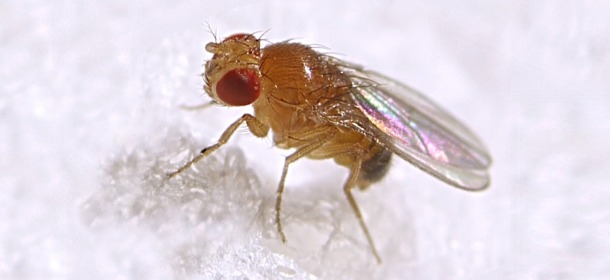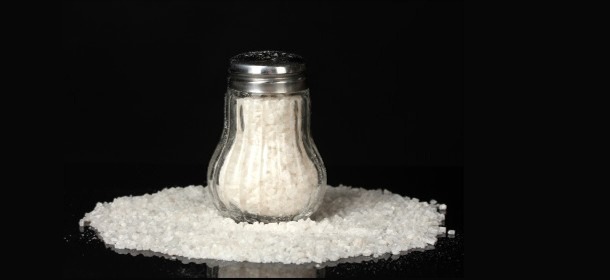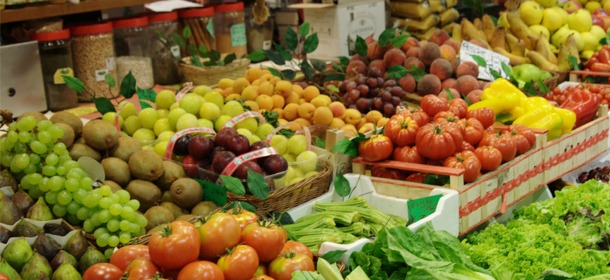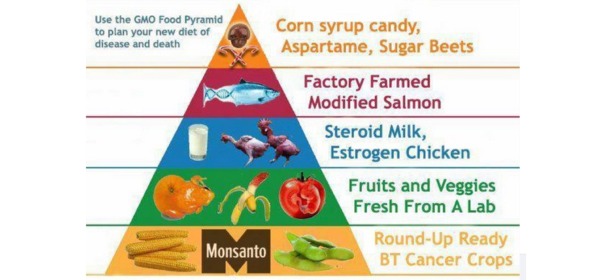Natural Health
Even Insects Do Better with Organic Food
We are being deeply and intrinsically damaged by the system that now feeds us. Our lives are shortened and our ability to move into the future, to reproduce ourselves, is impaired. That is the primary message brought home by a study comparing conventional and organic food in fruit flies.
by Heidi Stevenson
A new study published by PLoS investigated the health effects of organic foods on fruit flies, Drosophila melangaster, and found that even these insects do much better on organically-grown foods than on modern nutrient-destroying petroleum-based agriculture. The two most significant factors indicative of health, longevity and fertility, were shown to be significantly better on a diet of organic food than that produced by Agribusiness.
By the way, the study also clearly documented that soy is unhealthy—extremely so—though organic soy is still superior to conventional.
The results of the trial are not difficult to see when viewed in graph format. Therefore, we’ll let the graphs tell most of the story, with a little explanation along the way.
First is a group of four graphs comparing the lifespans of fruit flies fed on four different diets:
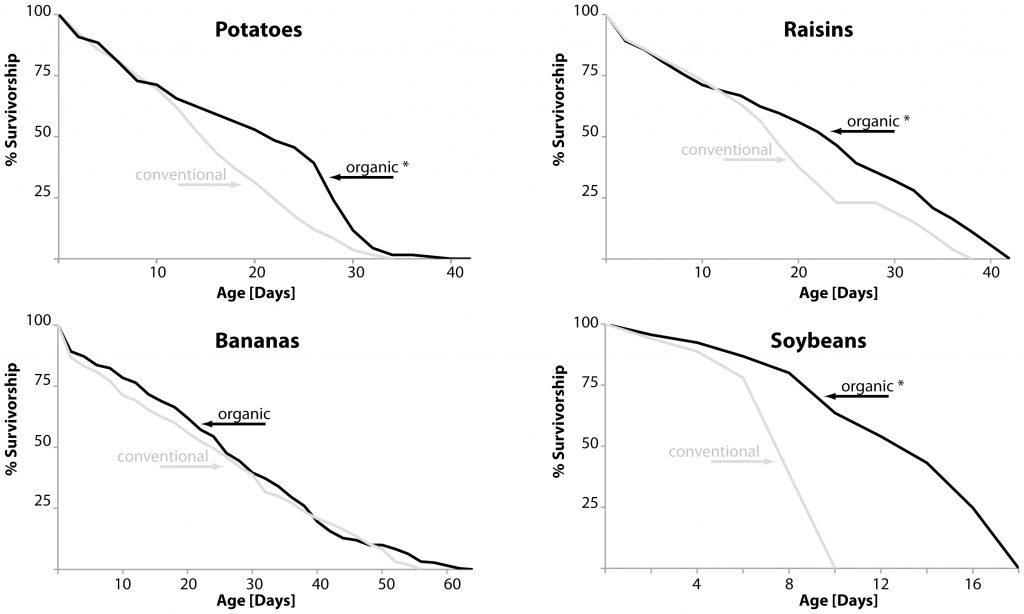
These graphs plot the length of life in days (X-axis) against the percent that survive to that point (Y-axis).
Interestingly, you can see that different diets have different effects, clarifying that it’s not only the quality, but also the food choices that matter.
Notice in the lower right graph, showing the lifespans of fruit flies that were fed soy, just how much shorter their lives are. The maximum is 17-18 days, as compared to more than 60 days for flies fed bananas. It’s also interesting to note that conventional bananas do appear to provide lifespans similar to that provided by organic bananas.
Think about that the next time you see hype for the “health benefits” of soy milk or soy anything-other-than-fermented-soy.
However, you can see that, though the difference in lifespan doesn’t show up until the flies have reached about 10 days in age, after that the percentage that survive diverges strongly, with significantly more organically-fed flies surviving to relatively old age.
The median life span of fruit flies on each diet is:
| Diet | Conventional | Organic | Percent Increase |
| Potatoes | 16 | 22 | 38% |
| Raisins | 2 | 24 | 20% |
| Bananas | 24 | 26 | None |
| Soy | 8 | 14 | 75% |
The fertility of fruit flies on each diet was compared:

Fruit flies stop producing eggs at about 10 days of age. In these graphs, you can see the average number of eggs produced by a fly plotted against the age of the fly. It’s obvious that the fertility of fruit flies is significantly greater when fed an organic diet. The authors noted that flies fed a normal lab diet that’s balanced for their nutritional needs did better than either of the single-item diets of the study.
From this point, the researchers excluded the results of soy-fed flies because of their dramatically shortened life spans.
Next, they investigated the fruit flies’ ability to withstand starvation:

Fruit flies were fed on their conventional or organic diets for ten days. They were then fed a starvation diet, and the life spans were measured in hours, not days. The graphs plot the percent of deaths (Y-axis) against the time of death (X-axis). The results were not as we might expect. They showed that, under starvation conditions, fruit flies fed organically-grown potatoes and bananas lived longer when starved, but those fed organically-grown raisins died sooner.
It would be an interesting study to discover the reason for these differences. Could it be that eating a nutrient-poor or nutrient-imbalanced diet is beneficial in some ways? Might it explain reportedly long lives of people who exist on nutrient-poor diets from an early age? These people tend to be significantly smaller. Could it be that flies fed a conventional diet tend to be significantly smaller, thus requiring a lower level of nutrients, therefore making them better able to survive under starvation conditions?
The study also examined the oxidative damage results of the two diets:

Oxidative damage affects general health, increasing aging and causing a decline in overall function. The researchers measured the relative amounts of oxidative damage incurred in each diet type, conventional Agribusiness-raised food and organic food. They fed the fruit flies on their respective diets for 10 days and then fed them a diet containing 5% H2O2 (hydrogen peroxide). They counted the number of dead flies twice a day. The results are recorded in the graphs above, which display the percent of flies that had died (Y-axis) against the number of hours they’d been fed the hydrogen peroxide diet (X-axis).
As has been true throughout this experiment, nothing distinctive resulted in the flies fed either conventional or organic bananas. The results for raisin and potato fed flies are not clear from the graphs, However, the experimenters’ calculations showed that there was no significant difference in lifespan between conventional and organic raisins, but the flies fed organic potatoes survived a median of 30 hours, while those fed conventional potatoes survived a median of 24 hours, a significant difference.
Conclusions
Longevity and fertility are probably the two most significant factors in determining health. The authors recognized that the diets fed fruit flies in their experiments were not ideal, whether they were conventional or organic. Flies fed a typical laboratory-standard diet fare better than the flies of their experiment simply because it’s balanced for optimal health. No single food can provide that balance. Clearly, a definitive experiment on health benefits or deficits would require that a balanced diet be fed.
Nonetheless, important information can be gleaned from an experiment in which single-item diets are fed to fruit flies. The most important evidence about health is contained in longevity. Longer life requires overall good health. If lifespan is abbreviated, then barring sudden violent ends, we can be sure that health has been compromised.
Fertility requires a certain level of health. The individual factors that, added up, provide that good health are many and varied. When fertility is lowered, it’s a strong indication that something is drastically wrong with an organism’s health.
This experiment provides good evidence that there is something critical missing in diets that have come to be known as conventional. These are the diets of Agribusiness, the system that has changed the very nature of food in our modern world.
Food is being changed from an expression of culture and a central focus of our lives to a commodity, an item seen first for its profitability and a distant second as an element of our lives. As a result, it’s mostly produced through an impersonal and mechanized process, one that’s secretive and divorced from nature.
Food is now seen in terms of items to be typeset on a label—not something to be honored in terms of the living plants and animals from which it came, but as a bunch of chemicals that can—and all too frequently are—produced in sterilized laboratories under unnaturally sterile conditions. The subtle and complex relationships between microscopic organisms and food—indeed, within ourselves and constituting part of our own essence—are ignored, replaced by labeling systems that declare value where there is none and mislead us into valuing that which has no intrinsic worth.
We are being deeply and intrinsically damaged by the system that now feeds us. Our lives are shortened and our ability to move into the future, to reproduce ourselves, is impaired. The specific details of how our food system does that are not entirely clear. However, a primary cause, Agribusiness and its soulless means of producing food distanced from nature is, most assuredly, killing us.
Source:
- Organically Grown Food Provides Health Benefits to Drosophila melanogaster, PLoS; Ria Chhabra, Santharam Kolli, Johannes H. Bauer; doi:10.1371/journal.pone.0052988
Tagged agribusiness, drosophia melangaster organic food. drosophia melangaster conventional food, drosophila food study, drosophila organic food, fertility diet, fertility longevity, fertility organic food, fruit flies organic food, organic food, organic food drosophila study, organic food fruit fly study, organic food insect study, plos fruit fly food study, science

